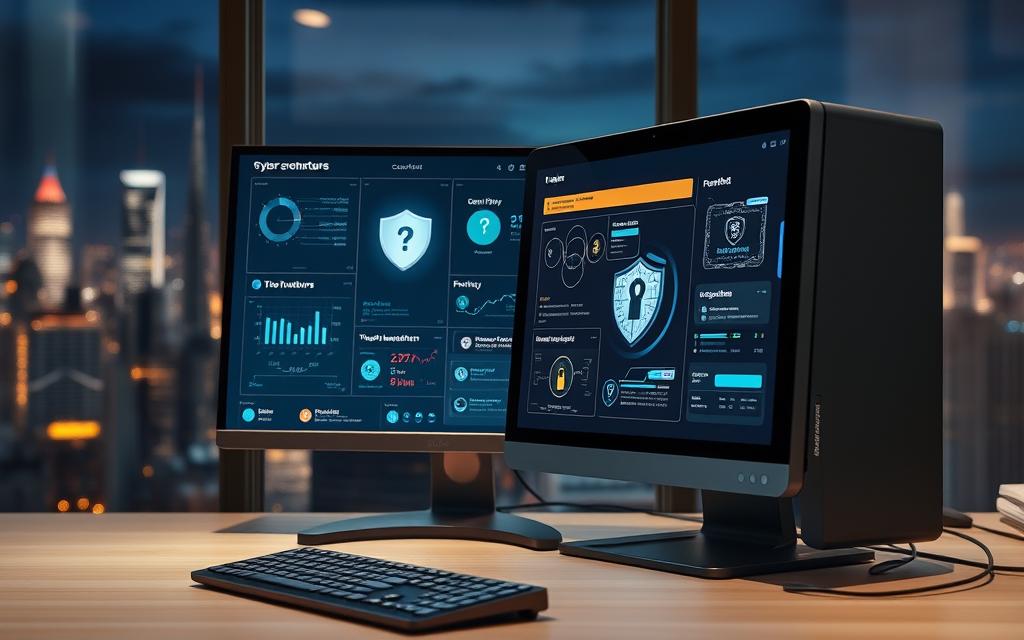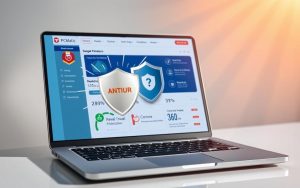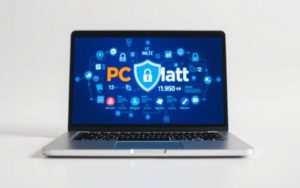Table of Contents
In today’s digital age, personal information and financial data are increasingly stored on home computers. This shift towards digital storage has made computer security a critical concern.
The sophistication of cyber threats is growing, putting home computers at significant risk. Inadequate protection can lead to severe consequences, including data breaches and financial loss.
To effectively protect home computer systems, a multi-layered approach is necessary. This includes both technical security solutions and good security practices from users. In this article, we will outline actionable steps to significantly improve information security on your device, safeguarding your personal information from cyber threats.
Understanding the Importance of Computer Security
With the rise of cyber threats, understanding computer security is essential for safeguarding personal information. As our reliance on digital technology grows, so does the risk of falling victim to cybercriminals.
The threats to home computers are diverse and constantly evolving. Cybercriminals are becoming more sophisticated, using various tactics to breach computer systems.
Common Threats to Home Computers
Home computers face numerous threats, including malware, ransomware, phishing attacks, and unauthorized access attempts. Hackers continually update their techniques to bypass security measures and gain access to sensitive information.
Potential Consequences of Inadequate Protection
If your devices are not protected, identity thieves and other fraudsters may access and steal your personal information. This can lead to identity theft, financial loss, and compromised accounts. Moreover, your computer could be used as a “zombie drone” to send spam or deposit malicious viruses, emphasizing the need for robust protection against such attacks.
Installing Essential Security Software
Essential security software is the cornerstone of safeguarding your home computer. With the ever-evolving landscape of cyber threats, having the right protection in place is crucial.
Antivirus Software: Your First Line of Defense
Antivirus software is your first line of defense against malicious programs that can destroy your data, slow down or crash your system, or allow spammers to send emails through your account. Norton Antivirus is a reputable option that provides comprehensive protection. For more information on choosing the best antivirus, you can learn more about keeping your computer.
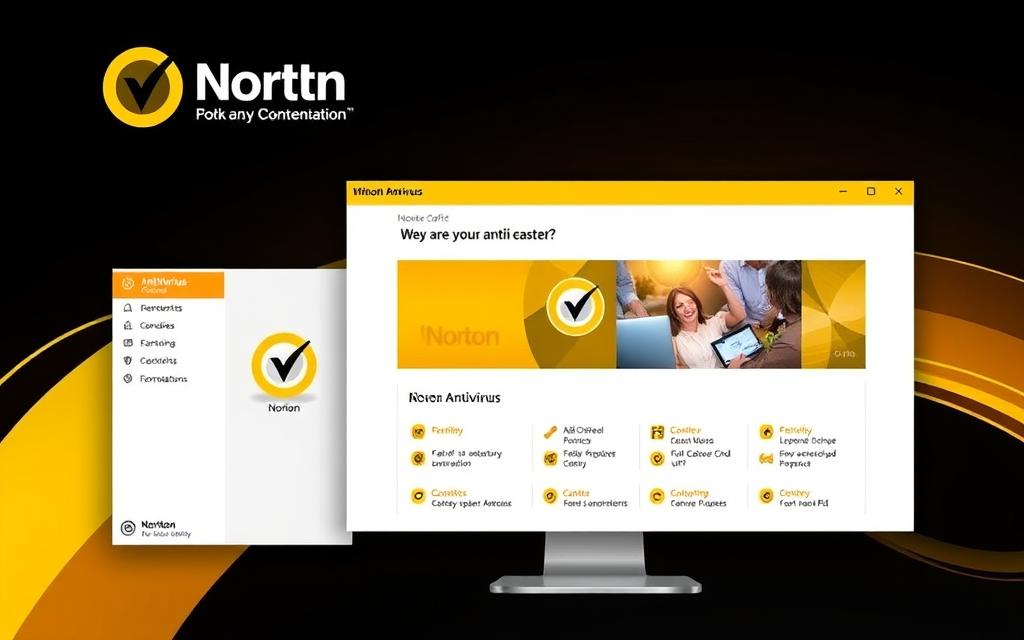
Setting Up and Configuring Firewalls
A firewall is a software program or piece of hardware that blocks hackers from entering and using your computer. Properly configuring both hardware firewalls on your router and software firewalls on your operating system is key to maximum protection. Windows Defender Firewall is a built-in option for Windows users.
Anti-Spyware and Anti-Malware Tools
In addition to antivirus software, dedicated anti-spyware and anti-malware tools provide extra layers of protection against specific types of threats. Malwarebytes is a popular choice for detecting and removing malware. These tools complement your antivirus software, ensuring your computer remains secure.
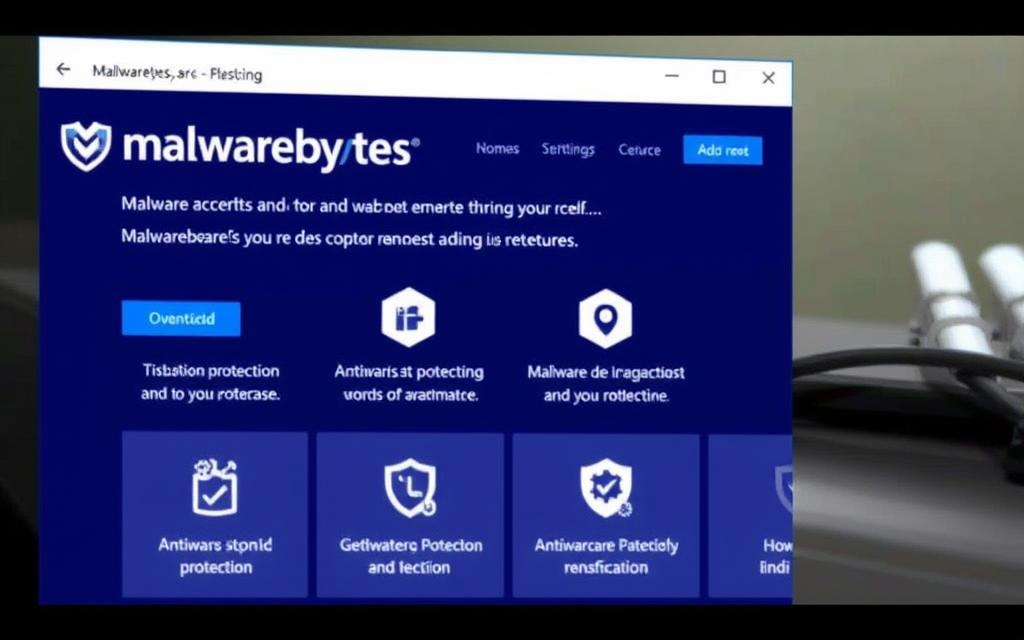
By installing and configuring these essential security software tools, you significantly enhance your home computer’s security posture, protecting against a wide range of cyber threats.
How Can You Protect Your Home Computer with Strong Authentication
Strong authentication is a critical barrier against unauthorized access to your home computer and online accounts. To effectively protect your digital life, it’s crucial to implement robust authentication methods.
Creating and Managing Strong Passwords
Creating strong, unique passwords is the first step in securing your home computer. Use a combination of uppercase and lowercase letters, numbers, and special characters to make your passwords robust. Avoid using easily guessable information such as your name, birthdate, or common words. It’s also essential to use different passwords for different accounts to prevent a single breach from compromising multiple services.
Using Password Managers Effectively
Using a password manager can significantly simplify the process of managing multiple complex passwords. These tools can generate strong passwords, store them securely, and auto-fill credentials on trusted websites. When choosing a password manager, consider options like LastPass or 1Password, known for their robust security features.
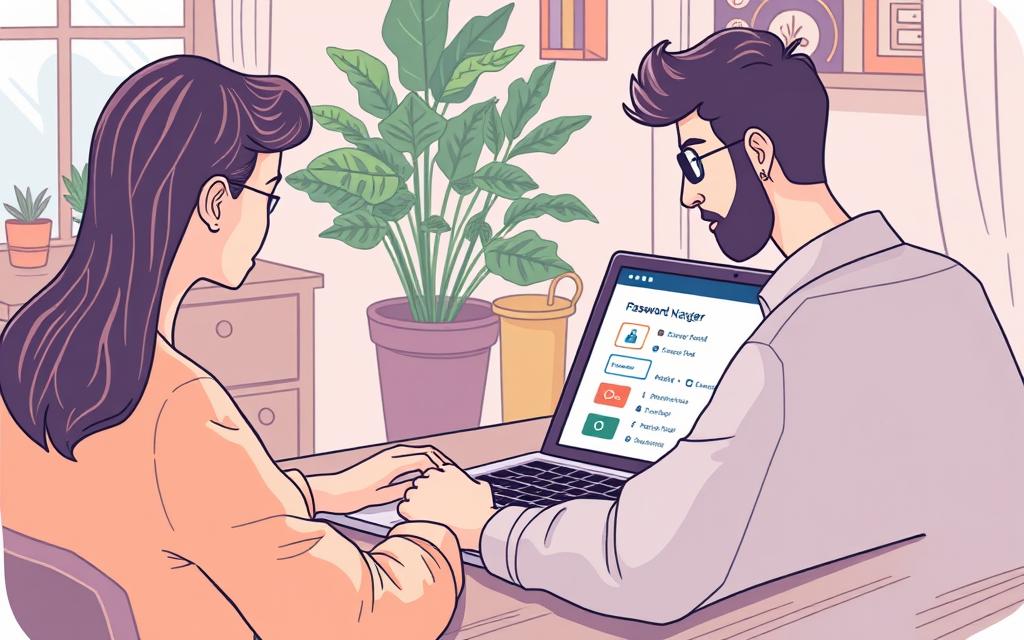
Implementing Multi-Factor Authentication
Multi-factor authentication (MFA) adds an extra layer of security by requiring not just a password but also something you have, like a mobile device, or something you are, like biometric data. Implementing MFA can significantly reduce the risk of unauthorized access to your accounts. Enable MFA wherever possible, especially for sensitive accounts like financial or email services.
Securing Your Network and Connection
Protecting your home computer and devices from cyber threats starts with a secure network connection. Your home network is the backbone of your digital environment, connecting various devices and allowing them to communicate with each other and the internet.
Protecting Your Home Wi-Fi Network
To secure your home Wi-Fi network, start by enabling WPA3 or WPA2 encryption. These encryption protocols protect your data by encoding all information sent over your network, ensuring that only devices connected to your network with the correct password can decode and access the information. Additionally, disable SSID broadcasting to prevent your network from being visible to unauthorized devices. Changing default router passwords and keeping your router’s firmware updated are also crucial steps in securing your home network. Consider segmenting your network for IoT devices to add an extra layer of security.
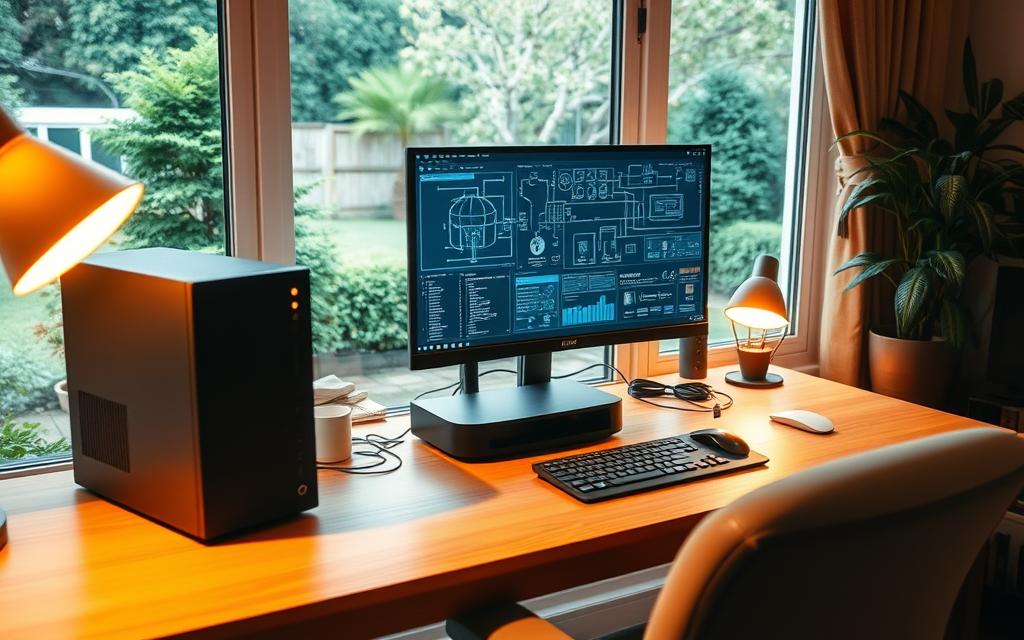
Safe Public Wi-Fi Practices
When using public Wi-Fi networks, be aware of the risks associated with these connections. Public Wi-Fi can expose your device to eavesdropping, man-in-the-middle attacks, and malware distribution. To use public Wi-Fi safely, employ a VPN service to encrypt your internet traffic, avoid sensitive transactions, and disable auto-connect features on your device. Always verify the authenticity of the network before connecting. By taking these precautions, you can significantly reduce the risk of your device being compromised while using public Wi-Fi.
Securing your home network and being cautious with public Wi-Fi are essential steps in protecting all your devices from cyber threats. By implementing these security measures, you create a secure perimeter around your digital environment, safeguarding your personal data and ensuring a safe online experience.
Maintaining Software and System Security
To protect your home computer, it’s essential to keep your software and operating system up to date. Outdated software can leave your computer vulnerable to cyber threats, as hackers often exploit known vulnerabilities in older versions.
Keeping Your Operating System Updated
Updating your operating system (OS) is crucial for maintaining system security. Services like Windows Update provide necessary patches and updates that fix security flaws, making it harder for hackers to gain unauthorized access. Enable automatic updates whenever possible to ensure your OS stays current. Regular updates can eliminate software flaws that allow hackers to view your activity or steal information.
By keeping your OS updated, you protect your computer from newly discovered vulnerabilities. This proactive approach is vital in the ever-evolving landscape of cyber threats.
Managing Application Updates and Patches
Managing updates across all installed applications is equally important. This includes browsers, productivity tools, and media players, all of which can contain security flaws if not updated regularly. Configure critical software to update automatically, but maintain control over when and how updates are applied to avoid disrupting important work.
| Software Type | Update Frequency | Importance |
|---|---|---|
| Operating System | Automatic | High |
| Browsers | Automatic | High |
| Productivity Tools | Regular Checks | Medium |
Protecting Your Data and Personal Information
Protecting your home computer involves more than just installing security software; it requires a comprehensive approach to data protection. This includes both safeguarding your personal information and ensuring that you have robust backup strategies in place.
Regular Data Backup Strategies
Regular backups are essential for protecting your data. The 3-2-1 backup rule is a recommended strategy: maintain three copies of your files, use two different types of media, and store one copy off-site. You can use external hard drives for offline storage or cloud storage services like iCloud, Google Drive, or Dropbox for automatic backups.

Recognizing and Avoiding Phishing Attempts
Phishing attempts can trick you into revealing personal information via email or messages with links to malicious sites. Be cautious of urgent requests, grammatical errors, and spoofed sender addresses. Verify the legitimacy of email messages before responding or clicking on links that could compromise your accounts.
By implementing these strategies, you can significantly enhance your protecting home computer efforts and safeguard against cyber threats.
Conclusion
As we’ve explored throughout this article, safeguarding your home computer involves implementing multiple layers of protection. To protect your home computer effectively, it’s crucial to combine various security measures.
This includes installing essential security software like antivirus programs and firewalls, using strong passwords managed by a password manager, and enabling multi-factor authentication. Additionally, securing your network, keeping software updated, and backing up important information are vital steps.
By taking these actions and staying vigilant against emerging cyber threats, you can significantly enhance your home computer’s security and protect your personal information. While some security measures may require extra steps, the protection they provide far outweighs the minor inconveniences, allowing you to use your home computer with greater peace of mind.
FAQ
What is the most effective way to secure my home computer from cyber threats?
Installing reputable antivirus software, using strong passwords, and keeping your operating system and applications up-to-date are crucial steps in securing your home computer.
How often should I update my antivirus software?
Antivirus software should be updated automatically whenever new virus definitions are released, typically daily or weekly, to ensure protection against the latest threats.
What makes a strong password, and how can I manage multiple complex passwords?
A strong password includes a mix of uppercase and lowercase letters, numbers, and special characters. Using a password manager like LastPass or 1Password can help generate and securely store unique, complex passwords for each of your accounts.
Why is multi-factor authentication important, and how does it enhance security?
Multi-factor authentication requires not only a password but also a second form of verification, such as a code sent to your phone or a biometric scan. This adds a significant layer of security, making it much harder for hackers to gain unauthorized access to your accounts.
How can I protect my personal data when using public Wi-Fi networks?
When using public Wi-Fi, avoid accessing sensitive information, and consider using a Virtual Private Network (VPN) to encrypt your internet traffic, protecting your data from interception.
What are the risks associated with phishing attempts, and how can I identify them?
Phishing attempts aim to trick you into revealing sensitive information. Be cautious of suspicious emails or messages with links or attachments from unknown sources, and verify the authenticity of requests for personal or financial information.
Why is regular data backup important, and what are the best practices?
Regular data backups ensure that your important files are not lost in case of a cyber attack, hardware failure, or other disaster. Use external hard drives or cloud storage services like Backblaze or Google Drive, and schedule automatic backups.
How can I ensure my firewall is configured correctly to protect my home network?
Enable the firewall on your computer and network router. For more advanced configurations, consider consulting the user manual or contacting a professional to ensure your firewall is set up to block unauthorized access while allowing necessary communications.


